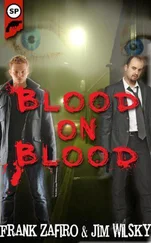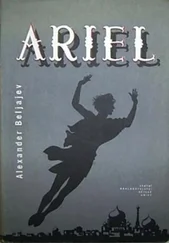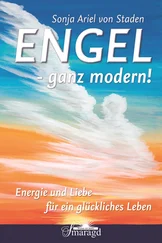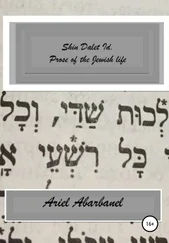Ariel Toaff - Blood Passover
Здесь есть возможность читать онлайн «Ariel Toaff - Blood Passover» весь текст электронной книги совершенно бесплатно (целиком полную версию без сокращений). В некоторых случаях можно слушать аудио, скачать через торрент в формате fb2 и присутствует краткое содержание. Жанр: Религиоведение, на английском языке. Описание произведения, (предисловие) а так же отзывы посетителей доступны на портале библиотеки ЛибКат.
- Название:Blood Passover
- Автор:
- Жанр:
- Год:неизвестен
- ISBN:нет данных
- Рейтинг книги:3 / 5. Голосов: 1
-
Избранное:Добавить в избранное
- Отзывы:
-
Ваша оценка:
- 60
- 1
- 2
- 3
- 4
- 5
Blood Passover: краткое содержание, описание и аннотация
Предлагаем к чтению аннотацию, описание, краткое содержание или предисловие (зависит от того, что написал сам автор книги «Blood Passover»). Если вы не нашли необходимую информацию о книге — напишите в комментариях, мы постараемся отыскать её.
Blood Passover — читать онлайн бесплатно полную книгу (весь текст) целиком
Ниже представлен текст книги, разбитый по страницам. Система сохранения места последней прочитанной страницы, позволяет с удобством читать онлайн бесплатно книгу «Blood Passover», без необходимости каждый раз заново искать на чём Вы остановились. Поставьте закладку, и сможете в любой момент перейти на страницу, на которой закончили чтение.
Интервал:
Закладка:
The Trent trials are a priceless document of this very kind. The trial records -- especially, the cracks and rifts in the overall structure permitting the researcher to distinguish and differentiate, in substance, not just in form, between the information provided by the accused and the stereotypes imposed by the inquisitors -- are dazzlingly clear. This fact cannot be glossed over or distorted by means of preliminary categorizations of an ideological or polemical nature, intended to invalidate those very distinctions. In many cases, everything the defendants said was incomprehensible to the judges – often, because their speech was full of Hebraic ritual and liturgical formulae pronounced with a heavy German accent, unique to the German Jewish community, which not even Italian Jews could understand [12] The expressions in Hebrew (ritual and liturgical) appearing in these depositions can usually be reconstructed with precision, fitting easily into the context of the ideological and religious discourse of the world of Ashkenazi Jewry to which these Jews belonged. There is, therefore, no question of any Satanic language redolent of witchcraft, or "pseudo-language" invented by judges to demonize the Jews, as suggested by many writers (A. Esposito and D. Quaglioni, Processi contro gli ebrei di Trento, 1475-1478 , I: I processi di 1475 , Padua, 1990: "The introduction into the depositions of the Jews of curses against Christians and their religion, rendered into transliterated Hebrew, more often in pseudo-Hebrew, then translated into Italian, is thought to have had the function of stressing the ritual nature of the infanticide on the one hand, and of creating a thick fog of mystery on the religious practices of the Jews and conveying the impression of an obscure witchcraft-like and Satanic rite").
;in other cases, because their speech referred to mental concepts of an ideological nature totally alien to everything Christian. It is obvious that neither the formulae nor the language can be dismissed as merely the astute fabrications and artificial suggestions of the judges in these trials. Dismissing them as worthless, as invented out of whole cloth, as the spontaneous fantasies of defendants terrorized by torture and projected to satisfy the demands of their inquisitors, cannot be imposed as the compulsory starting point, the prerequisite, for valid research, least of all for the present paper. Any conclusion, of any nature whatsoever, must be duly demonstrated after a strict evaluation and verification of all the underlying evidence sine ira et studio , using all available sources capable of confirming or invalidating that evidence in a persuasive and cogent manner.
p. 15]
The present paper could not have been written without the advice, criticism, meetings and discussions with Dani Nissim, a long-time friend, who, in addition to his great experience as a bibliographer and bibliophile, made available to me his profound knowledge of the history of the Jewish community of the Veneto region, and of Padua in particular. The conclusions of this work are nevertheless mine alone, and I have no doubt that that the above named persons would very largely disagree with them. I have engaged in lengthy discussions of the chapters on the Jews of Venice with Reiny Mueller, over the course of which I was given highly useful suggestions and priceless advice. Thanks are also due to the following persons for their assistance in the retrieval of the archival and literary documentation; for their encouragement and criticism, to Diego Quaglioni; Gian Maria Varanini; Rachele Scuro; Miriam Davide; Elliot Horowitz; Judith Dishon; Boris Kotlerman and Ita Dreyfus.
Grateful thanks are also due to those of my students who participated actively in my seminars on the topic, held at the Department of Jewish History at Bar-Ilan University (2001-2002 and 2005-2006), during which I presented the provisional results of my research. First and foremost, however, I wish to thank Ugo Berti, who persuaded me to undertake this difficult task, giving me the courage to overcome the many foreseeable obstacles which stood in the way.
CHAPTER ONE
AT VENICE WITH HOLY ROMAN EMPEROR FRIEDRICH III (1469)
It was in February of 1469 that Holy Roman Emperor Friedrich III, traveling from Rome, made his solemn entrance at Venice with a long retinue for which that which was to be his third and last official visit to the city which he so loved and admired [13] Cfr. P. Ghinzoni, Federico III Imperatore a Venezia (dal 19 febbraio 1469), in "Archivio Veneto", n.s., XIX (1889), no. 37, pp. 133-144.
.It was to be his first visit to the City of Venice since his triumphant reception immediately following his coronation as Holy Roman Emperor by the Pope in Rome in 1452 [14] On the Roman coronation of Friedrich III in 1452 see, recently, Ph. Braunstein, L'événement et la memoire: regards privés, rapports officiels sur le couronnement romain de Federic III , in "La circulation de nouvelles au Moyen Age", Société des Historiens Médievistes de l'Enseignement Supérieur Public, Publications de la Sorbonne, Ecole Française, Roma, C. (1994), pp. 219-229. Friedrich was had also been in Venice in 1436, returning from a pilgrimage. The imperial retinue in 1452 was particularly numerous, as shown by the Cronaca di Zorzi Dolfin, cited by Marin Sanudo ("[...] con bocche 1.500 a spexa della Signoria e a Trivixo erano cavalli 1.200 che lo aspettavono; la spexa era al giorno ducati 1000 per dodici giorni" [“with 1,500 mouths to feed at His Lordship’s expense and 1,200 horses at Treviso waiting for him; the expenses amounted to 1,000 ducats per day”]. The dance in the hall of the Greater Council was held "cum infinite donne della terra, 250") [“with infinite numbers of ladies from the mainland, 250”]. For this passage from the Cronaca del Dolfin, see the Biblioteca Marciana, Venice, Italian manuscripts, cl. VII, cod. 794 (8503), c. 310r. See also Marin Sanudo, Le vite dei dogi (1423-1474). I: 1423-1457 , by A. Caracciolo Aricò, Venice, 1999, pp. 471-473. During his visit to Venice in 1469, where "li fo fatti grandissimi apparati" [“where great displays of magnificence were prepared for him”], Friedrich's retinue was reduced and consisted of eight hundred dignitaries. Friedrich, on this third visit, was sumptuously received at the Palazzo Ducale "et, venendo a veder Rialto, errano sopra li banchi posti assaissimi ducati et do garzoni picholi in camixa con una palla per uno in mano, che l'uno et l'altro si butavono li ditti ducati, si come si butta formento" [“and, when he came to see the Rialto, large quantities of gold ducats had been placed on stands in a high place, where two little boys in shirt sleeves, each with a paddle in his hand, were tossing the ducats about, as if they were grain”]. (see Marin Sanudo, Le vite dei dogi . II: 1457- 1474 , Venice, 2004, pp. 109-111).
.
As was customary on these magnificent occasions, Friedrich spent entire days in diplomatic meetings and in receiving the official visits of ambassadors, and in conferring diplomas, stipends and privileges of all sorts upon beneficiaries selected from long lists of names prepared by his officials, as dictated by imperial interests and his own. In those days, intriguers, wheeler-dealers and adventurers attached to the monarch’s court, or who thought they were, toiled with a calculated industriousness to intercede in favor of various persons seeking official ratification of their own professional and economic success; of priests, patricians and academics bent upon crowning their own cursus honorum through the attainment of some precious imperial investment, or those of a variety of ethnic and religious communities intent on achieving confirmation of their ancient or recent privileges, not to mention merchants and intriguers intent on covering up affairs of dubious honesty and scraping up advantages for themselves during the solemn visit [15] On this visit, and probably on the preceding visit in 1452 as well, it seems that some Venetian patricians were awarded the rank of knight by Friedrich (Sanudo, Le vite dei dogi , cit., vol. II, p. 109: "li fo fatto festa in sala del Gran Conseio [...] et sopra il soler lo Imperador fece alchuni zentilomeni cavalieri") [“The Emperor was greeted in the Greater Council with great pomp and ceremony […] and on the terrace he dubbed several gentlemen knights”].
.
Интервал:
Закладка:
Похожие книги на «Blood Passover»
Представляем Вашему вниманию похожие книги на «Blood Passover» списком для выбора. Мы отобрали схожую по названию и смыслу литературу в надежде предоставить читателям больше вариантов отыскать новые, интересные, ещё непрочитанные произведения.
Обсуждение, отзывы о книге «Blood Passover» и просто собственные мнения читателей. Оставьте ваши комментарии, напишите, что Вы думаете о произведении, его смысле или главных героях. Укажите что конкретно понравилось, а что нет, и почему Вы так считаете.












